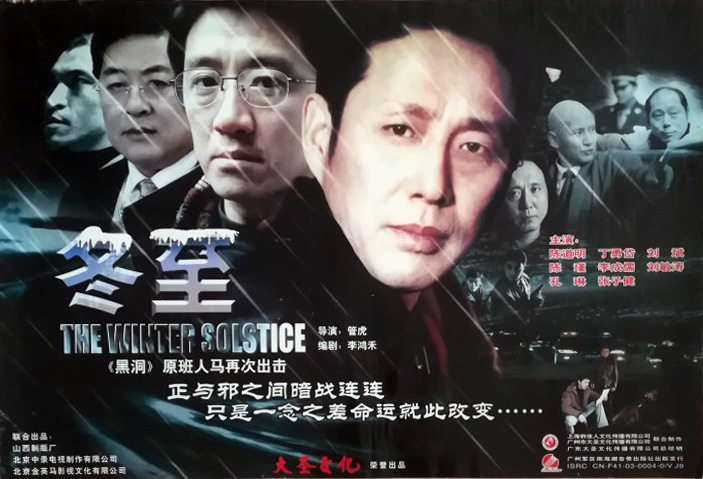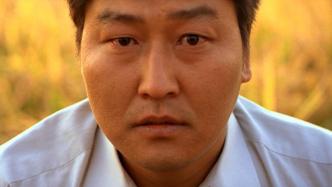
Editor's note: This is a nostalgic theater.
A few years ago, when the suspense theater hadn't appeared, we didn't have so many suspenseful national dramas like today, but occasionally some suspense movies. And every time one appears, there will be comments or publicity saying "this is the Chinese version of "Memories of Murder".
This has always been said, but never really realized.
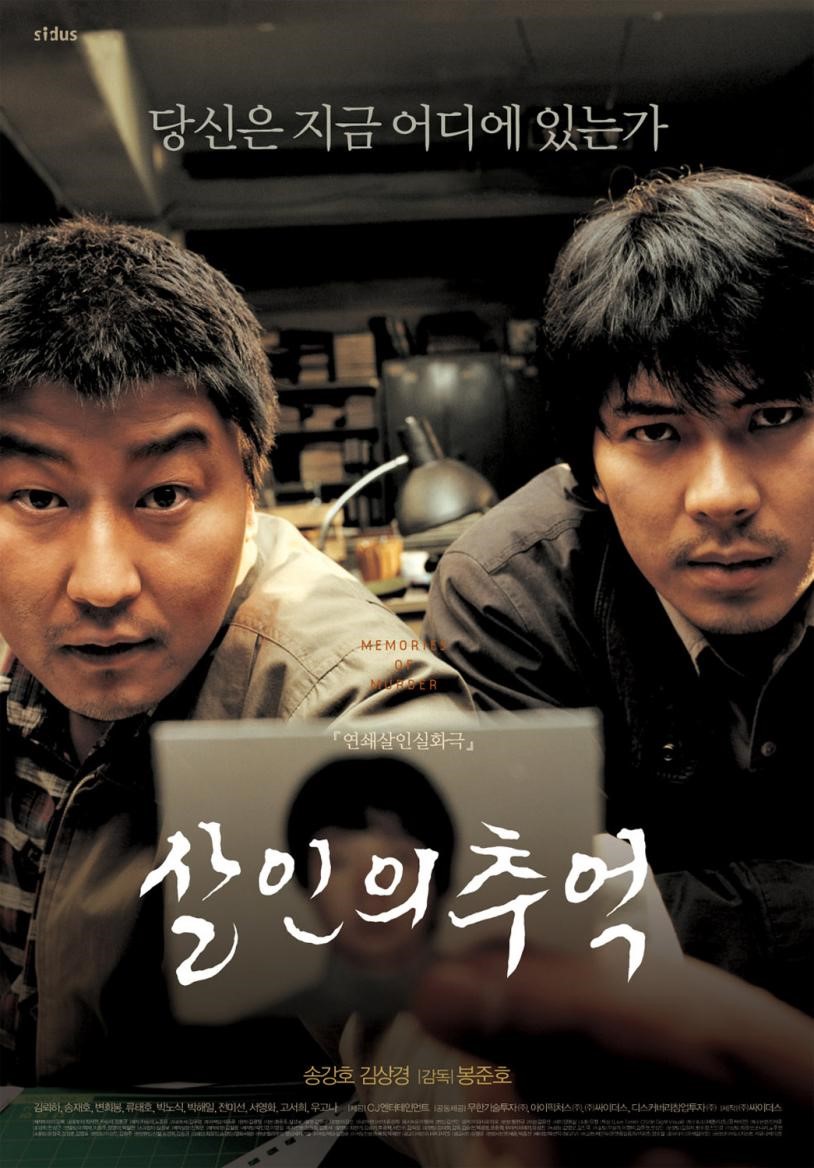
"Memories of Murder" poster
"Memories of Murder" was created by South Korean director Bong Joon-ho and was released in May 2003. Together with "Old Boy" directed by Park Chan-wook in November of that year, it became a masterpiece of the overall rise of Korean films in the new century. The peak of this development can be considered to be 2019 and 2020. Also directed by Bong Joon-ho, "Parasite" won two Best Picture Awards at the Cannes Film Festival and the Oscars. It marks that Korean films have not only achieved great success in terms of business and style, but also won the recognition of European and American film circles in terms of artistic aesthetics.
"Memories of Murder" is the second feature film written and directed by Bong Joon-ho, and it is also his highest-rated work on Douban, with 700,000 viewers giving it a high score of 8.9, and it is now ranked 94th among the 250 Douban movies.
Bong Joon-ho, this may be the greatest master when writing the history of Korean film in the future, when he finished "Memories of Murder", he was not yet 34 years old.
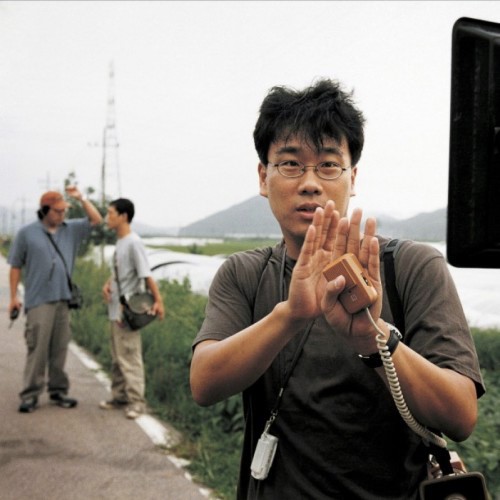
Bong Joon-ho, in his 30s, just started his career
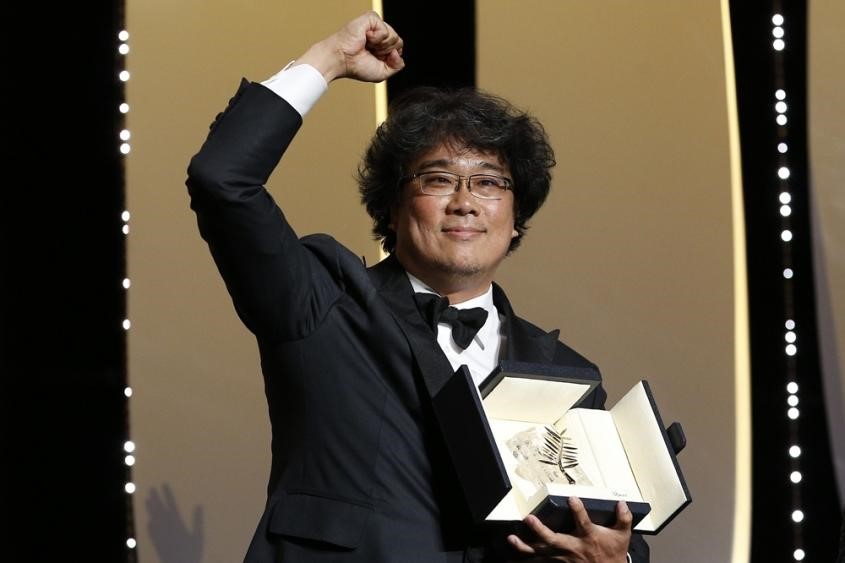
50-year-old Bong Joon-ho has achieved fame
The story of the film is adapted from the real Korean "Hwaseong Serial Murder Case". Between 1986 and 1991, a total of 14 serial homicides occurred. The victims were all women. Most of them were raped and then killed. They ranged from teenagers to seventies. These cases have not found the real culprit all the year round. It was not until 2019 that the police confirmed through the comparison of DNA technology that the prisoner in this series of cases was identified as Li Chunzai, a male prisoner serving a sentence, and finally closed this unsolved case.
Including detection methods, etc., many details remind us of the "Silver Serial Murder Case" that occurred between 1988 and 2002.
In fact, the case in the movie is not that complicated. Women were randomly victimized on rainy nights. The heavy rain left fewer clues in the crime, which added a lot of objective difficulties to the detection. Detectives later discovered that the original victims were all dressed in red, while the radio station was playing a pop song "Sorrowful Love Song" on demand. Rainy weather, red clothes, music, the superposition of these specific crime patterns obviously hinted at the murderer's abnormal psychological state, and became a breakthrough in solving the case.
The reason why the case in the film is not that complicated is because the characteristics of the murder case have similar settings in European and American movies or Hong Kong movies. Perhaps it is a real case that happened in various countries. The perpetrator's criminal psychology is always affected by some simple and similar external factors, such as specific weather or stimulation by the characteristics of women's clothing, and some specific patterns appear in serial murder cases. After being adapted into a movie plot, these external clues are sometimes condensed and refined to better meet the image requirements of the movie, and eventually become similar, basically an upgrade of behavior control disorders such as heterosexuality and transvestism in reality.
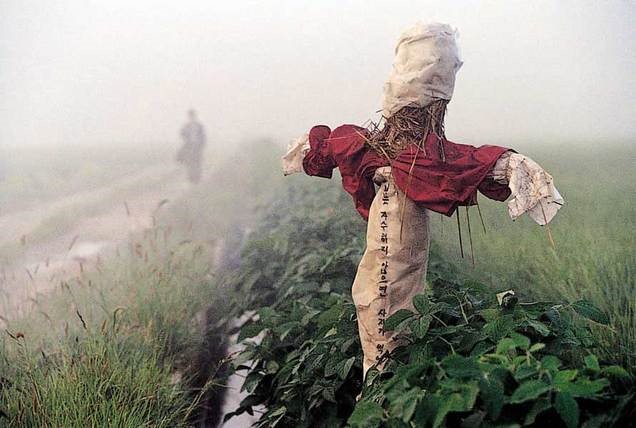
"Memories of Murder" is a creative adaptation based on this incident before the facts of the case come to light.
The small tombstone erected in the field in the film is a kind of sacrifice for the victim. The red dress is a typical feature common to all cases.
For serial killings, the perpetrators are all perverts, but perverts are not uncommon in movies. If the main perspective of the story is placed on the process of perverted criminals committing violence, then there will be a Hong Kong tertiary film "Doctor Lamb" with strong curiosity; , then you will get the American film "The Silence of the Lambs" which is biased towards psychological thrillers; The story, as well as domestic film and television dramas that are getting uglier after a good start.
The narrative perspective of "Memories of Murder" is neither of these. Although it is not original and has influenced many domestic literary and artistic films in the future, most of them have not understood and learned the essence of the theme that this film tries to express, let alone the amazing details and writing methods of each scene. .
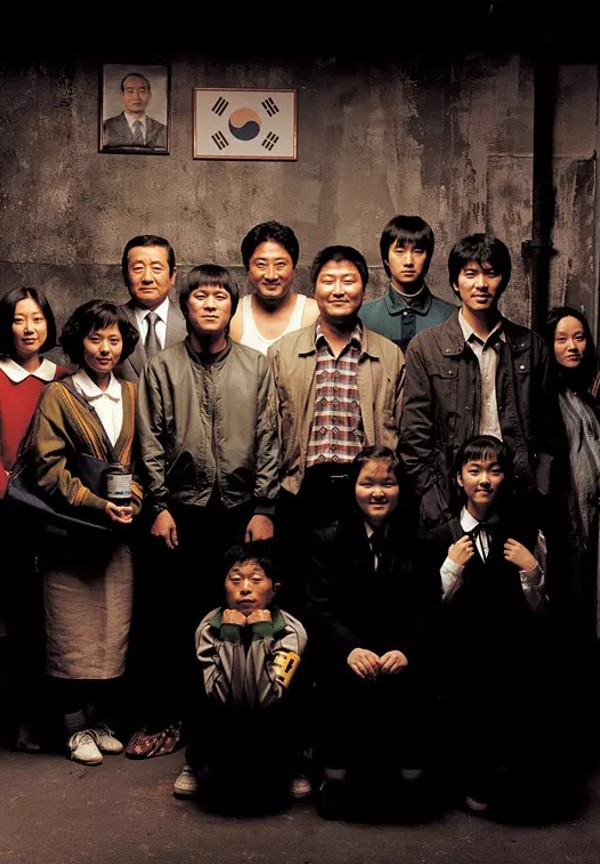
A promotional group photo of the cast of the film. This film is a group play of a group of rural characters. The story is very popular, but it is actually not easy to understand what is being filmed. Like "Parasite".
Most of the plot starts from the main perspective of police detectives, showing their detection process. In order to facilitate the promotion and comparison of the film, two detectives are routinely set up. The protagonist is "brainless" with more rural characteristics and rough handling methods, and the other is "unhappy" from Seoul with more experience in handling cases. . The difference between "brainless" and "unhappy", brute force and technical school is a conventional setting that is more prone to dramatic conflicts. Sometimes European and American movies also feature two detectives with different skin colors, or one old and one young, a man and a woman, which all belong to the conventional drama structure of the film.
There are contrasts in the characters, and there are dramatic conflicts. The police detectives can have different understandings of the overall direction of detection, the handling and views of suspects, and even the use and use of each clue discovered. At first it looks very different, and they may even fight and part ways, but in the end they "reach the same goal by different routes".
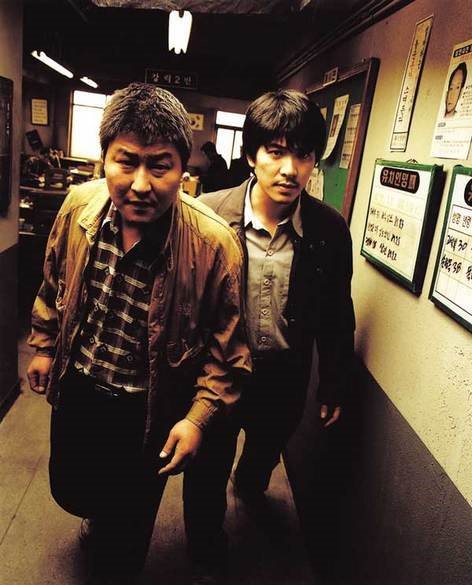
A combination of "brainless" and "unhappy" detectives. Briefly outlined character traits that represent potential dramatic conflicts.
Of the two police detectives in "Memories of Murder", the more important one is obviously the country policeman played by Song Kanghao. Not only because Song Kanghao will become South Korea's national-level actor in the future, but because this character has more and more intense dramas. If it weren't for the deliberate tragic tone at the beginning and end of the film, half of the film's plot time could be viewed as a comedy, and these funny plots obviously come from the exaggerated handling methods of the rural police. Including but not limited to: the habit of using eyes to identify whether a suspect is guilty, beating up a new police partner as a criminal, constantly telling new clues, even actively forging on-site evidence to lure a confession, going to the bathroom to stare at other people's genitals to look for criminals, Apologize by buying bootleg shoes for a misidentified suspect...
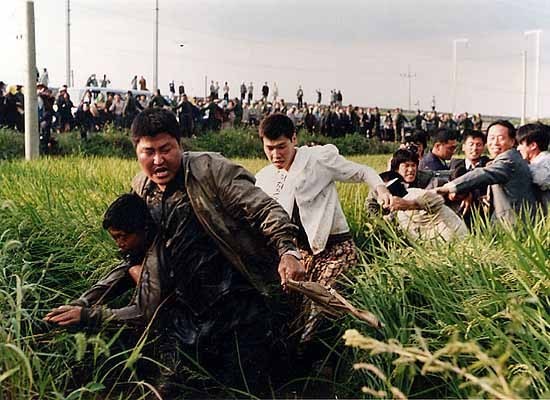
The "recurrence of the case" that was supposed to be serious has turned into a comedy farce. The one on the right who laughs the most is actually the chief of police, and the characters are very funny.
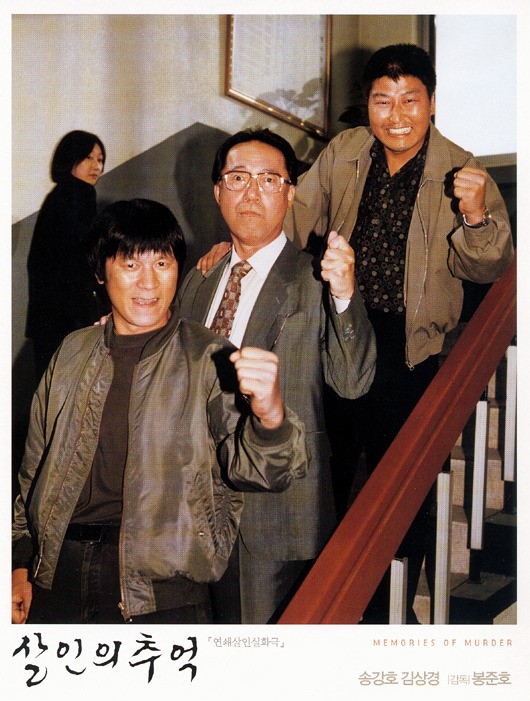
It has a very old atmosphere, and in the "promotional photos of solving the case" in the plot, the images of the characters are vivid on the paper.
In addition to this protagonist, the group portraits of other rural policemen also have exaggerated comedy elements. For example, an assistant who is more brainless than "brainless", a rough policeman who only flies kicks to interrogate prisoners every time, is no different from a gangster; The limelight; the police chief who was sent later was not too stupid, but he still got drunk in the country dance hall and danced with his arms around the lady. The images of the first two suspects in the film are also very ridiculous, with a sense of being funny and obviously impossible to be the murderer.
All these weird actions are somewhat similar to exaggerated Northeast sketches, showing the image of a small character with low quality, reckless, but not too bad heart. From the perspective of regional culture, many protagonists in Korean movies and Northeast sketches are similar little people. Their ways of dealing with people have vivid prototypes in real life, which is a relatively "down-to-earth" way of creation.
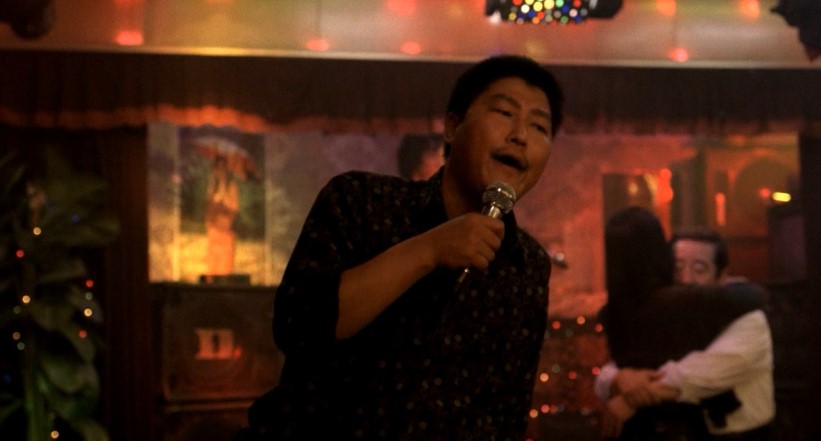
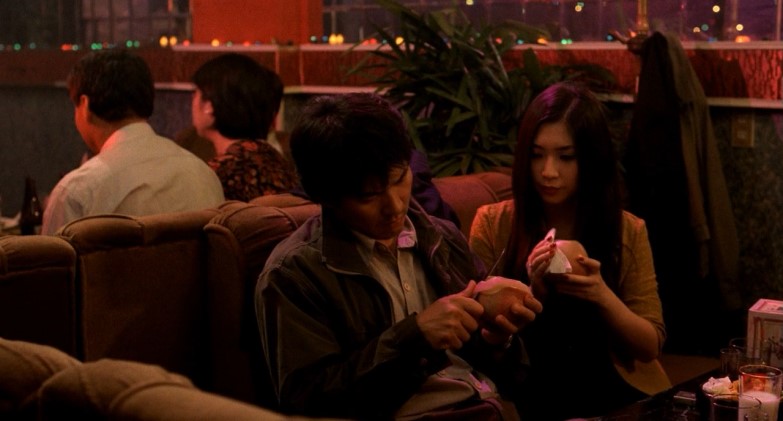
The details of Bong Joon-ho's script are sometimes amazing. The police are relaxing in the KTV, the protagonist is singing, the new chief of police is dancing with the dancing girl in his arms, and the serious police detective is teaching the drinking girl how to peel an apple. Such details are really a high combination of life and imagination.
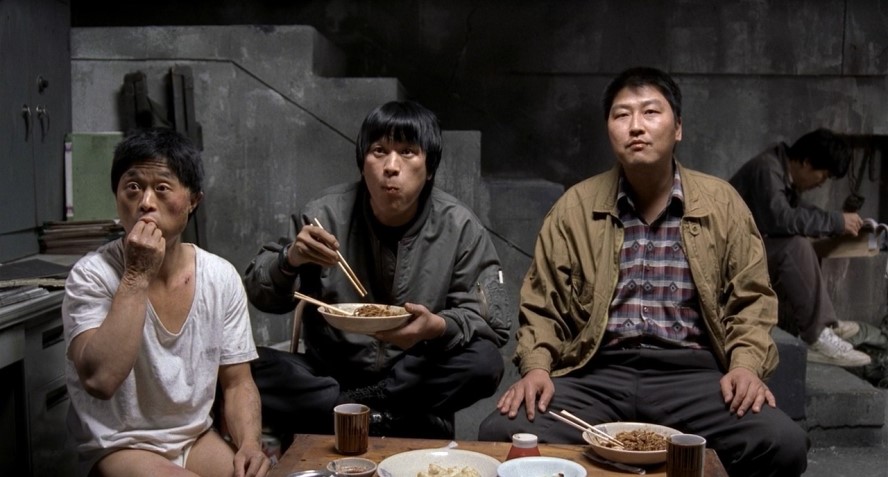
In the previous scene, the police were still trying to extract a confession, and in the latter scene, the police detective and the suspect were eating noodles with fried sauce and watching American police movies on TV. Is such a plot ironic or nonsensical? It is more based on the peculiar customs of the "police and civilian family" in the countryside.
But what's interesting is that such a ridiculous little character, the little policeman, shows many touching characteristics as the plot progresses. You can say that the protagonist is stupid, but you can never say that he doesn't work hard. His sense of justice that hates evil, his dedication to handling cases, some cunning country wisdom, and his concern for his colleagues are all qualities that an excellent police detective should have. The part that people are moved and appreciated.
Another policeman who is "unhappy" also has the excellent qualities of these detectives, and even has extremely professional case-handling skills. The clues he found in the film did not go wrong once, and each time he got closer to catching the real culprit. But near the end of the film, they still went in a similar direction with "Brainless". Both of them fell into deep self-blame and annoyance. Getting more irritable.
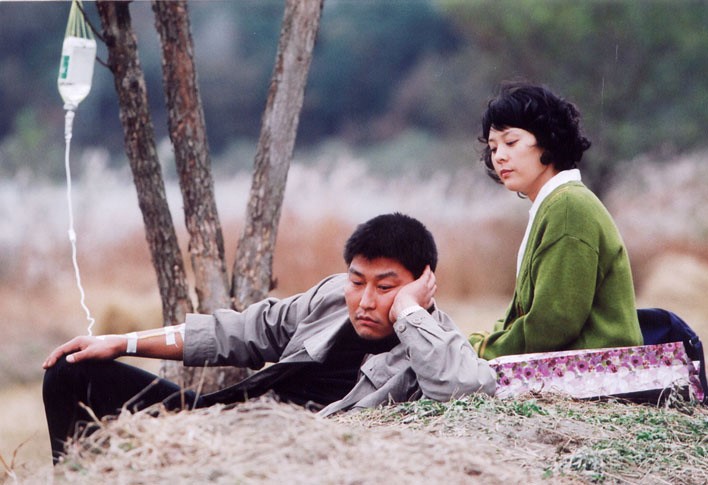
The girlfriend took the police detective to an outing to relax. A detail with a hanging bottle reflects the state of the character very well. True love and dedication don't need big books, you can see the depression.
The film as a whole presents a superimposed style of tragedy and comedy. The screenwriter and director Bong Joon-ho's ironic and sympathetic attitude towards the characters runs through almost all of his subsequent films. The characters he wrote are sometimes funny and sometimes sad, and the enhanced treatment at the end of each film makes these little characters have a heroic sense of tragedy, which deeply moves the audience.
Without exception, these characters are failures and fall very hard. But they have all worked hard and struggled incomparably. This sentiment is enough to impress many viewers.
The protagonist of the film is like sitting in front of the screen, most of the ordinary audience, ordinary people in life.
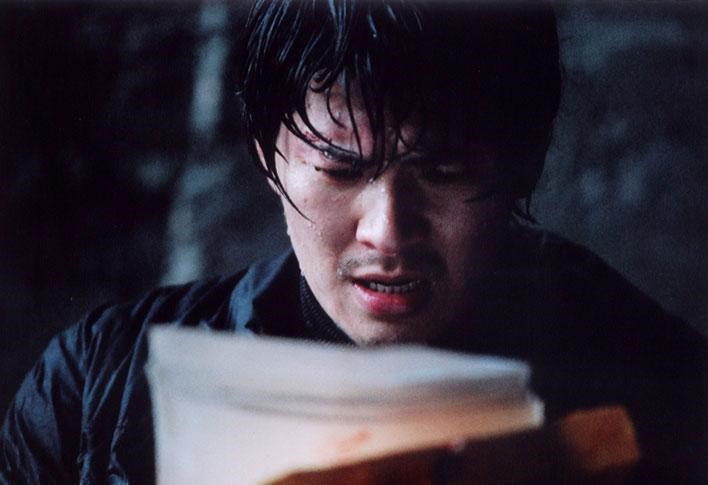
A police detective who worked extremely hard, an unacceptable result. But sometimes in life you have to accept it even if you don’t accept it.
This involves the complexity of the theme of the film. Going back to the previous topic, if a movie adapted from "Serial Murder" only shows the novelty of crime, it is obviously impossible to become a long-lasting movie.
Someone commented that "Memories of Murder" is about "how a group of incompetent South Korean policemen turned a case that should have been solved into an unsolved case." If you consider that at the beginning of the film, the police detectives did not do enough to protect the evidence at the scene, destroyed many clues that should have been noticed, and there were ridiculous tortures and news shows, then it is true.
But that would be a bit harsh to say. It not only ignores the police detectives' continuous efforts to pursue the truth after the film, but also ignores that from the limited clues, they are actually very close to the real murderer. At the same time, their methods of solving crimes were also limited by the technology of the times. Like reality, they are not incompetent or dereliction of duty, but in that era, DNA testing could only be sent to American laboratories to get a report. Also in reality, the technology of DNA comparison and gene sequencing has only helped us find more criminals who have not been caught in recent years.
The real cruel truth in this world is: even if you try very hard, you will still fail; even if you hate crime terribly and work hard to protect ordinary people, crime will still happen, even on your dear ones.
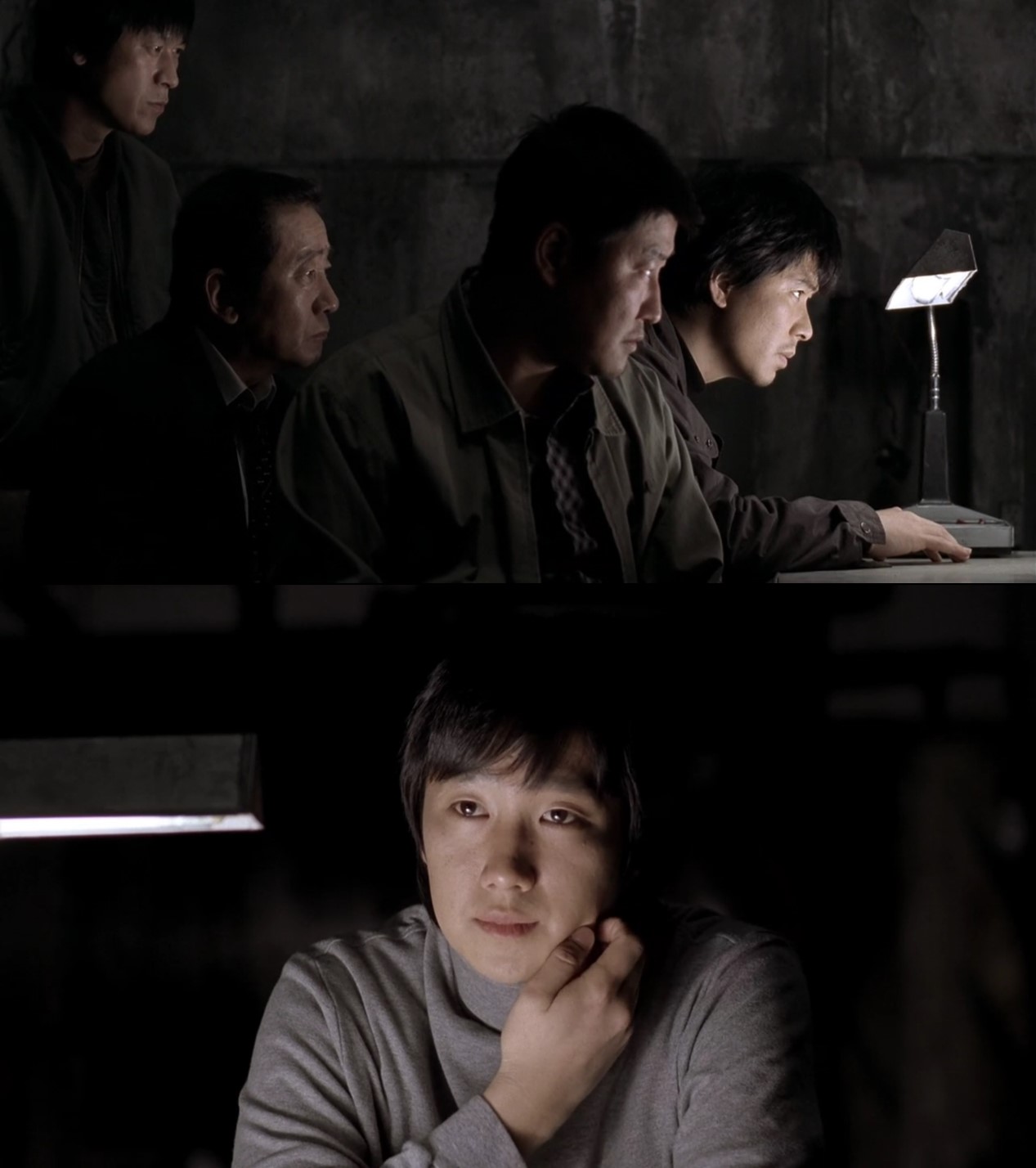
When the detectives catch a third suspect, by all accounts he should and must be the criminal. All that remains seems to be to collect evidence and obtain a confession. But the end of the film is obviously not the way.
The end of the film is quite shocking. Just like "Seven Deadly Sins", the urban police detective who couldn't stand the blow pulled the suspect to the tunnel entrance, angrily began to extract a confession with guns, and even planned to lynch him. This dark hole, like a proverb by the philosopher Nietzsche, "When you gaze into the abyss, the abyss also gazes into you", almost engulfed the police detectives.
Is it okay to punish extreme crimes in the same way as extreme crimes?
But it was just a feint. He had been acting as a "brainless" police detective before, but now he arrived with a DNA report from the United States, and then rationally stopped his colleagues' crazy actions. Because of the scientific identification of DNA, it told them that the person in front of them who looked very much like a murderer and must be a murderer was not a murderer at all.
A result that is psychologically unacceptable, but has to be accepted. It is also a cruel and shocking ending for the audience.
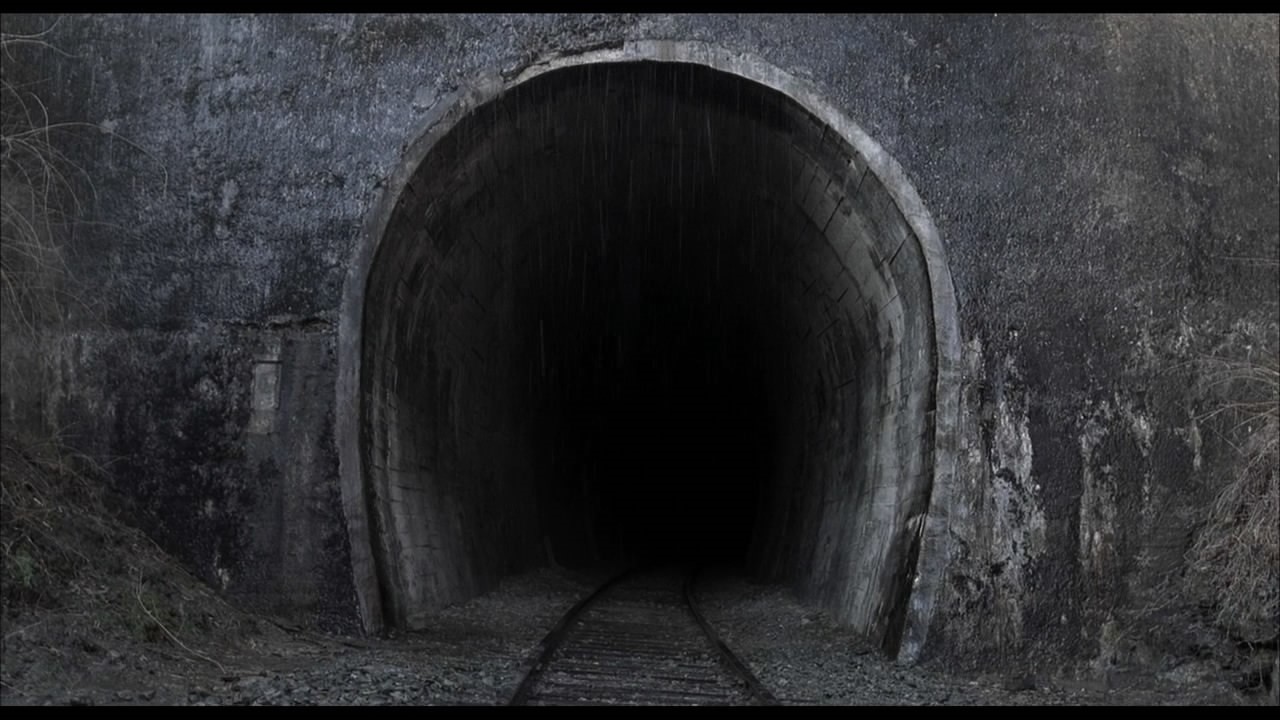
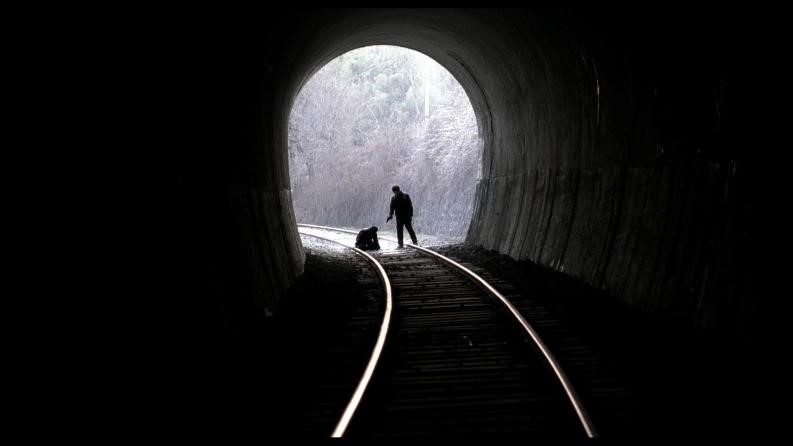
The tunnel is not only because of the beautiful picture, but also has a meaning. At the same time, the train also appeared many times in the film. These are some of the artistic views taught in film schools.
After tracking down the whole film, the police detectives were very desperate, there were sacrifices, and there were many victims, but in the end the criminal was not found.
It's that cruel.
Some movie fans will notice that in an interrogation scene in the film, a boiler worker suddenly appeared in the background, walking very mysteriously, but was not noticed by the police detectives. That might be the criminal the film hints at.
It may or may not be. It doesn't matter.
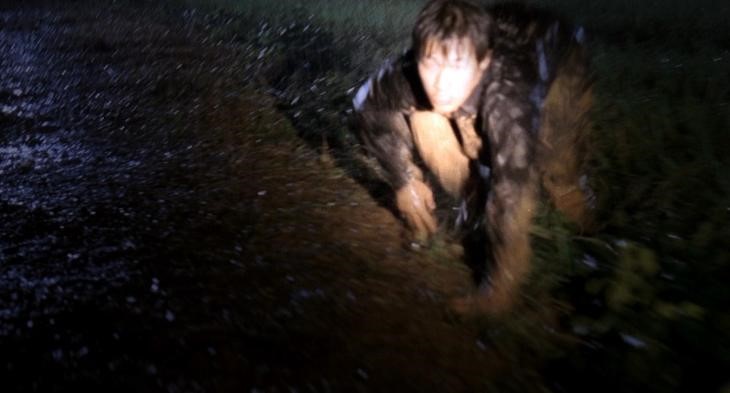
In one scene in the film, there was a vague figure of the murderer. According to later interviews, this is not any actor in the film, but an ordinary field worker.
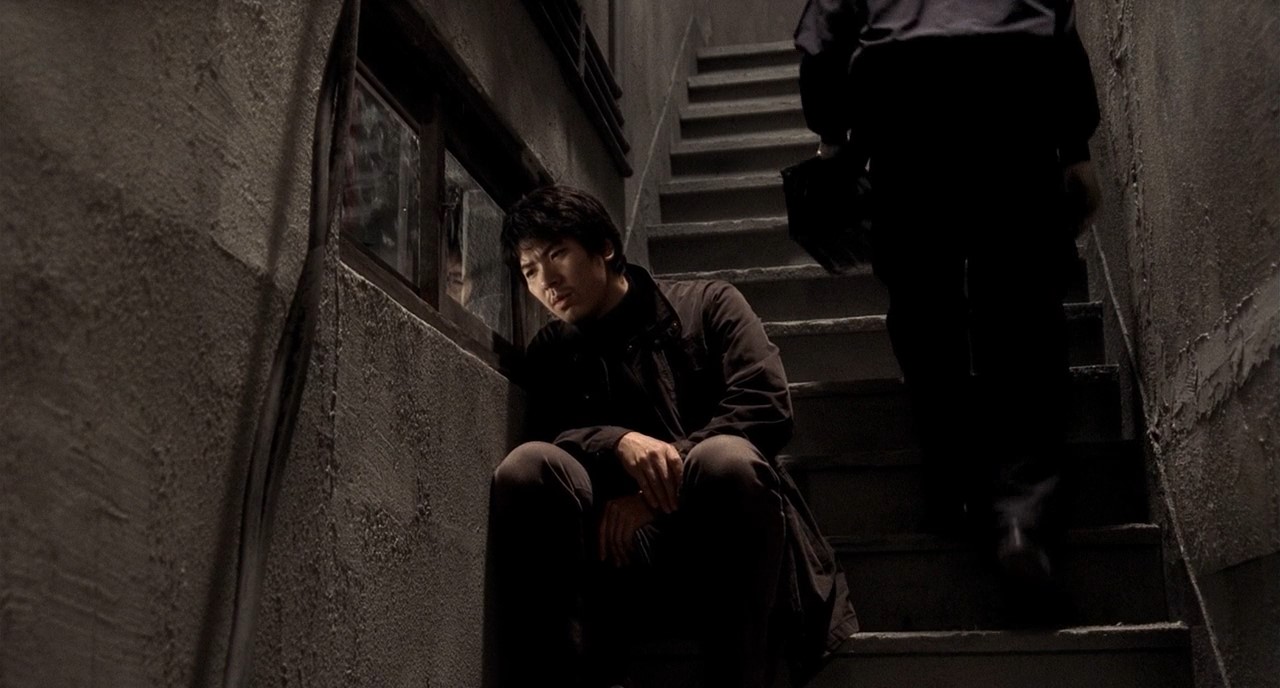
In another scene in the film, the back of a boiler worker suddenly appears, and he may also be the murderer. But this is all a psychological warfare between the director and the audience: you think you have seen it, and you think you will catch it soon, but in the end you didn’t catch anything.
Also like the last scene of the film. More than ten years have passed, and the "brainless" played by Song Kanghao has matured a lot at this time. He is married and has a pair of children, but he is no longer a policeman. why? Maybe you feel self-blame because you realize your lack of ability, maybe you feel disheartened because you can't find the real culprit, it doesn't matter.
When he drove by, he returned to the ridge where the body of the first victim was found, and looked at the ditch where the body of the victim was found, just as he looked at the tunnel like an abyss before. What is he thinking?
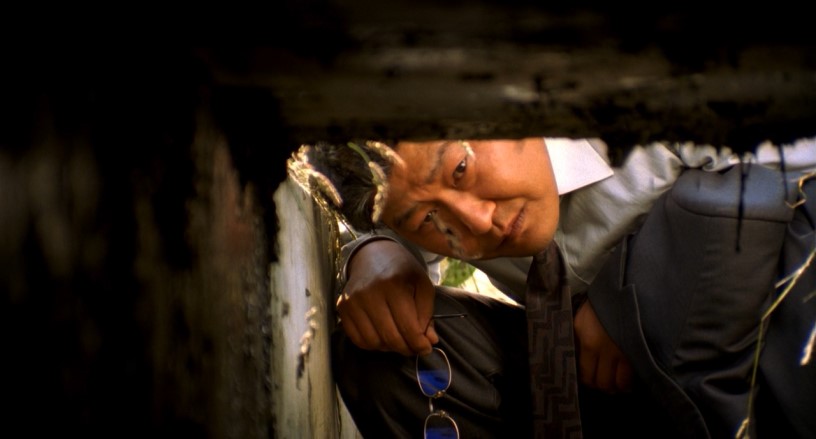

Peeking into a trench is like peering into a tunnel. Represents the other side of darkness. I can see it, but I can't catch it.
An innocent little girl told him that someone had come to stare like him before. That, the former detective realized, might be the real culprit! But when asked what the little girl looked like, the little girl could only answer that he was an ordinary person.
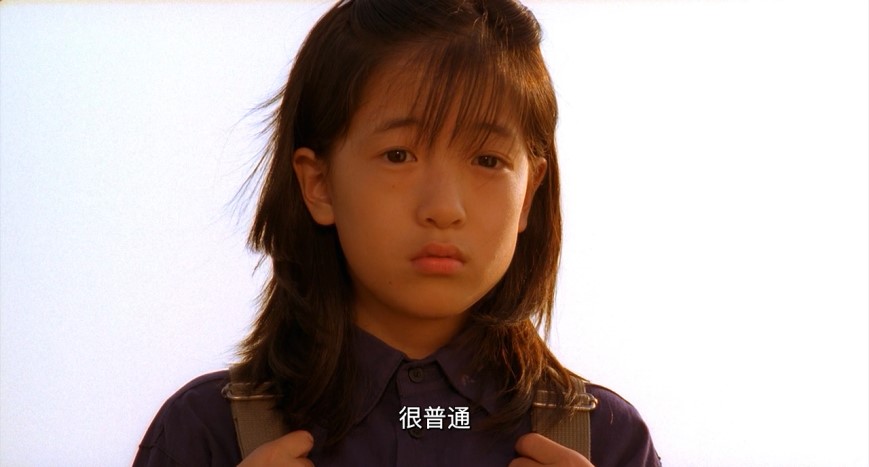
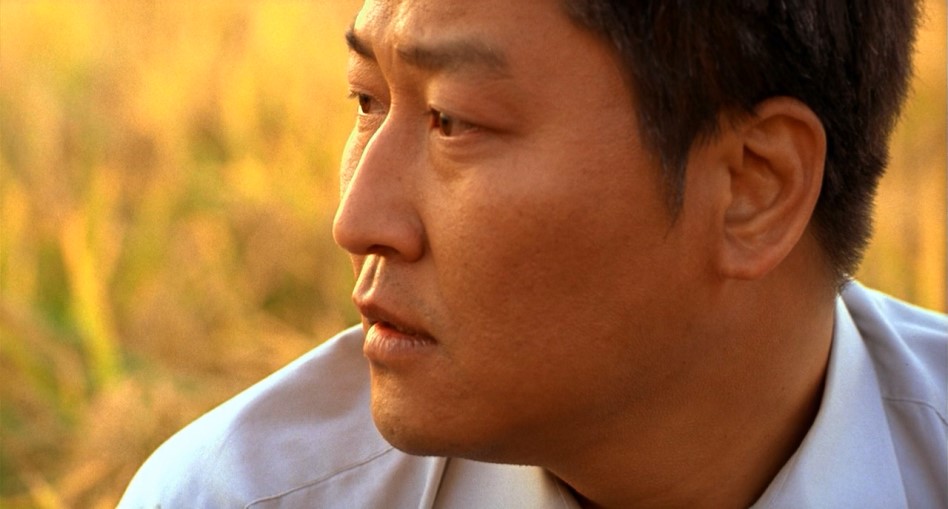
For all the victims, they have seen the real culprit, but they have no chance to speak again; for the police detectives, the time has passed, and the criminal, like ordinary people, has disappeared into the vast crowd.
At the end of the film full of meaning, the emotional grief and indignation of the characters reached its peak, facing the camera directly, and deeply infected the audience.
Sometimes you try very, very hard and nothing changes. There is no other way but to accept it.
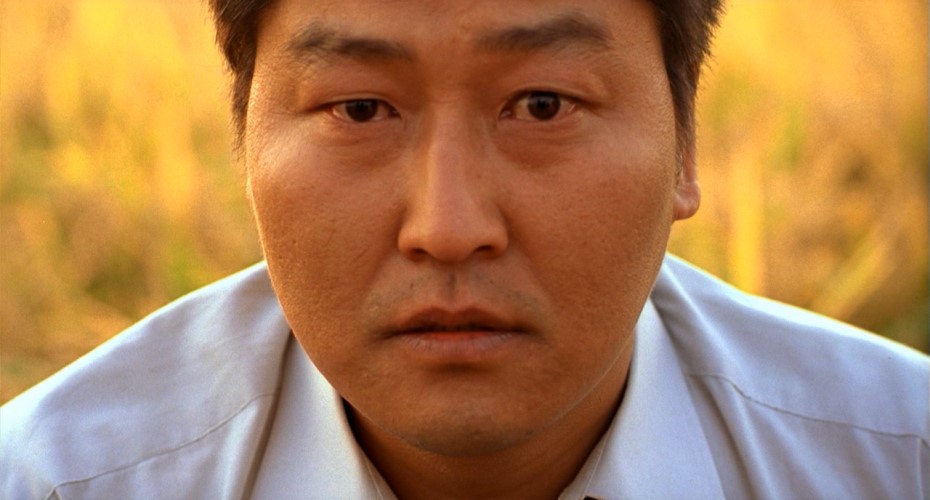
In the last scene of the film, the protagonist looks at the camera with speechless grief and unwillingness.

In the opening scene of the film, a little boy catches a grasshopper and puts it in a bottle. A kind of echo.
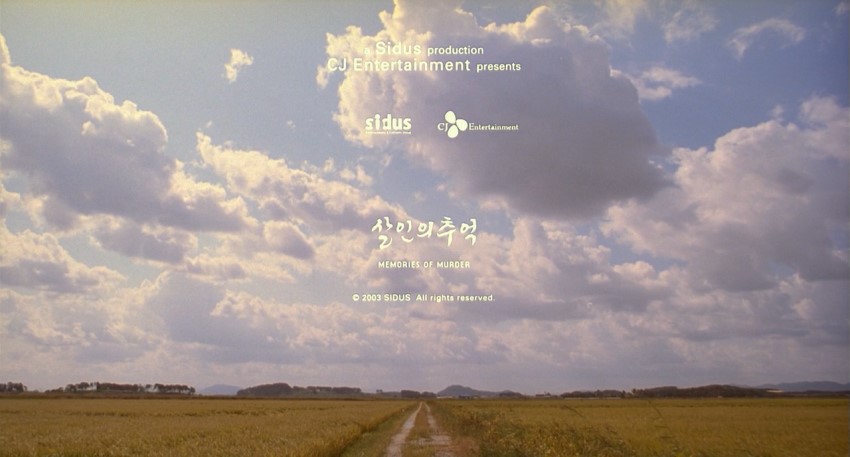
The last shot of the film with the subtitles is like the rice fields and sky that appear many times throughout the film. What does it mean? To paraphrase an old saying, "the world is not benevolent, and everything is a humble dog".
"Memories of Murder," which was released 20 years ago, is a very remarkable film.
"The Chinese version of "Memories of Murder"" has always been said, but it has never been truly fulfilled.
Nothing is nothing, and there is no other way but to accept it.


